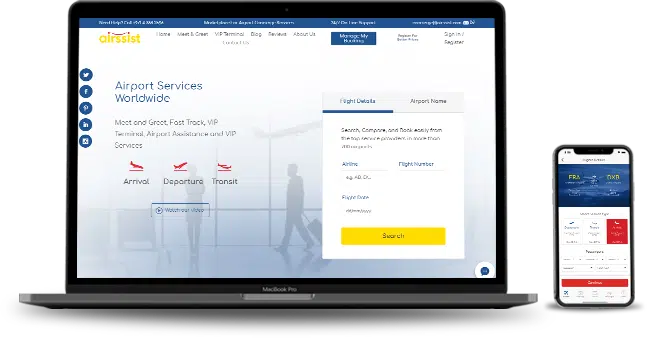Table of Contents
The world of corporate travel is transforming at an unprecedented pace. As global business travel spending is projected to reach $1.64 trillion in 2025, the way professionals travel for work is undergoing a significant evolution. This shift is driven by technological innovation, a new generation of travelers, and a greater focus on sustainability and personal well-being. Get ready to explore the key business travel trends that will define the year ahead.
The Rise of Agentic AI in Corporate Travel
Artificial intelligence is moving beyond simple assistance to become a proactive partner in your travel planning. Agentic AI represents the next wave of smart technology, capable of autonomously anticipating traveler needs, rebooking flights during disruptions, and optimizing itineraries in real-time. This proactive functionality means less time spent on logistics and more time focused on the purpose of your trip.
For travel managers, this technology offers powerful tools for ensuring policy compliance and identifying cost-saving opportunities. Agentic AI can process vast amounts of data to automate expense reports, manage approval flows, and negotiate rates . This evolution marks a significant step in the future of corporate travel, creating a more seamless and personalized journey for every employee.
Meetings in Motion: Turning Transit into Productive Time
The traditional boardroom is no longer the only place for collaboration. The “Meetings in Motion” trend transforms travel time on planes, trains, and even in self-driving vehicles into valuable opportunities for networking and brainstorming. This shift is particularly relevant with the rise of hybrid work models (McKinsey), which have increased the need for meaningful in-person interactions (Amadeus Business Travel Trends 2025).
Airlines are responding with redesigned business class cabins that feature communal seating areas, like Qatar Airways’ QSuite. On the ground, high-speed rail networks are expanding, offering entire carriages for private events and conferences. These innovations turn transit time into an extension of the workplace, fostering natural conversations and creativity outside of the formal office environment.
Biometric Gateways: Your Face is Your Passport
The airport experience is set for a major upgrade with the implementation of “Biometric Gateways.” This technology uses facial recognition to allow travelers to move through checkpoints like check-in, security, and boarding without needing a physical passport or boarding pass. Your face becomes your single, secure form of identification.
According to the International Air Transport Association (IATA) 2024 Global Passenger Survey, 73% of global air passengers are interested in using biometrics to streamline their journey, with 75% preferring biometric identification over traditional documents. This technology not only reduces stress and queuing times but also enhances security. As governments and airports continue to adopt these systems, the future of business travel promises a faster, more secure, and touchless airport experience.
New-Gen Frequent Flyers Reshape Expectations
Generation Z now makes up more than a quarter of the global workforce, and their preferences are significantly influencing corporate travel trends. These “New-Gen Frequent Flyers” see business trips as chances for both professional and personal growth, prioritizing flexibility, sustainability, and the chance to blend work with leisure.
Recent research from Hilton and Booking.com Business shows that a significant portion of Gen Z travelers prefer “bleisure” trips, extending business travel for vacation time, and expect employers to support this trend. Their strong environmental awareness is also evidenced in the 2024 American Express research revealing Gen Z’s demand for more sustainable travel options, like choosing rail over air for short-haul business trips. To attract and retain this new talent, businesses are adapting their travel programs to be more personalized and purposeful.
Jetset Hacking: Prioritizing Wellness on the Go
The demands of business travel can take a toll on health and well-being. “Jetset Hacking” is a growing trend focused on optimizing personal health while on the road. Professionals are actively seeking ways to manage jet lag, maintain fitness routines, and make healthy eating choices.
The travel industry is responding with wellness-focused innovations. Hotels like Equinox Hotels now offer rooms with advanced sleep technology, cryotherapy chambers, and IV vitamin drips. Airlines such as Qantas and Virgin Atlantic are designing cabins to counteract jet lag and providing healthier meal options. Companies are also recognizing their duty of care, updating travel policies to prioritize employee well-being over simply maximizing productivity.
Proximity Power: The Growth of Domestic and Regional Travel
While international trips remain important, domestic and regional business travel is becoming a strategic priority. This trend, known as “Proximity Power,” is driven by the rise of hybrid work models, the need for cost-effective collaboration, and a focus on sustainability. Shorter-distance trips reduce carbon footprints and align with corporate climate commitments.
The expansion of high-speed rail networks is making regional travel more convenient and efficient than ever. This shift also reflects a broader economic trend where companies are localizing supply chains and strengthening regional partnerships. As a result, domestic travel is a critical component of modern business operations, offering value and connection closer to home.
Conclusion: Navigate the Future of Travel with Ease
The business travel insights for 2025 point toward a smarter, more personalized, and efficient experience. From AI-powered planning to seamless airport journeys, these corporate travel trends are designed to enhance productivity and well-being. As the landscape continues to evolve, having the right support to navigate these changes is crucial.
Make your next business trip effortless with airssist Airport Concierge Services. From fast-track security and immigration to personalized assistance at every step, we ensure your journey is smooth and stress-free. Let us handle the details so you can focus on what matters most.
Frequently Asked Questions (FAQs)
What is the biggest trend in business travel for 2025?
The integration of Agentic AI is one of the most significant business travel trends. It will move from providing simple assistance to proactively managing travel logistics, such as rebooking flights and optimizing itineraries, creating a more personalized and efficient experience.
How is sustainability affecting corporate travel?
Sustainability is a major focus. Companies are implementing “rail-first” policies for short-haul trips, encouraging carbon offsetting, and choosing travel partners with strong environmental commitments. This is driven by both corporate responsibility goals and the expectations of the new generation of business travelers.
Will biometric technology replace passports for business travel?
While physical passports will still be necessary for the near future, biometric technology is rapidly being adopted at airports worldwide. It will create “Biometric Gateways” that allow for a faster, touchless experience at check-in, security, and boarding, with your face serving as your primary identification.
How are younger generations changing the future of business travel?
Gen Z and young millennials are driving demand for flexibility, “bleisure” opportunities (blending business and leisure), and sustainable travel options. Their preferences are pushing companies to create more personalized travel policies that support work-life balance and personal growth.
Note: Please note that the information on this page is generic & subject to change due to fluctuations in airport services. Kindly confirm service availability with our team, as offerings may vary daily.



